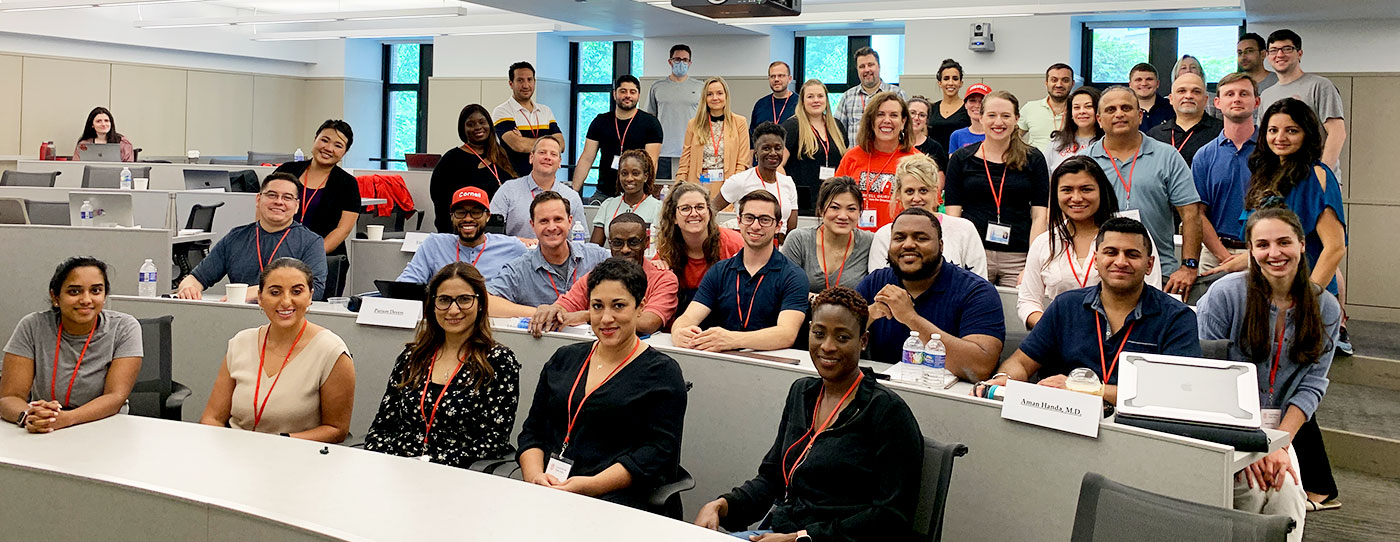Curriculum
A cohort model designed for working professionals, students learn 80% online, with two week-long sessions on Cornell University’s campus in Ithaca, NY and one weekend session in Boston. All courses have been developed by Cornell faculty and are supported by Executives-in-Residence who will mentor students through their capstone projects.

The program’s interactive hybrid learning environment, combined with a cohort of talented industry leaders, maximized my educational experience while balancing my demanding leadership career. The Sloan Program’s curriculum has truly set the stage for the acceleration of my career and connected me to the robust alumni base of the country’s oldest master’s program in its discipline.
– David Kennedy, EMHA ’23, Deputy Director of Ambulatory Care Services, NYC Health + Hospitals
Example Coursework
- Microeconomics for Managers
- Health Care Organizations and Behavior
- Business Statistics
- Financial Accounting
- Health Law for Managers
- Managerial Finance
- Health Marketing for Managers
- Managing Operations
- Leadership, Innovation and Change Management
- Health Care Finance for Managers
- Health Care Strategy
- Health Policy for Managers
- Field Study for Health Managers
- Microeconomics for Managers
- Health Care Organizations and Behavior
- Population Health for Executives
- Quality Improvement for Managers
- Health Care Innovation
- Health Care Finance for Managers
- Elective Courses

Sloan Competencies
All program courses and activities are designed to help a student achieve our core competencies (listed below) which the Sloan Program has identified as crucial to success in the healthcare industry.
Application Details
How to apply:
- The application for Summer 2026 admission is now open.
- Create an account to fill out the application
EMHA Enrollment Counselor:
- Margaret Johnson (Walch)
607-330-3262
margaret.johnson@cornell.edu
Schedule a quick call with me: calendly.com/mwalch
